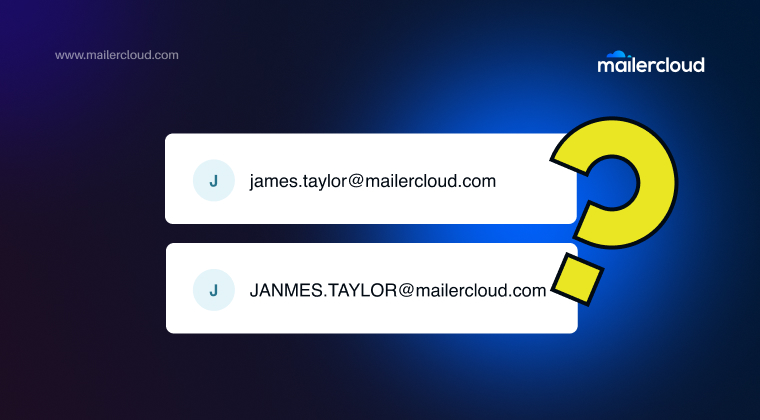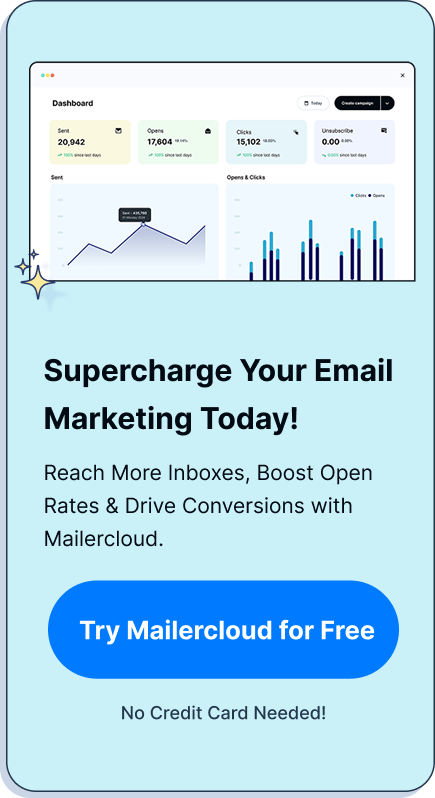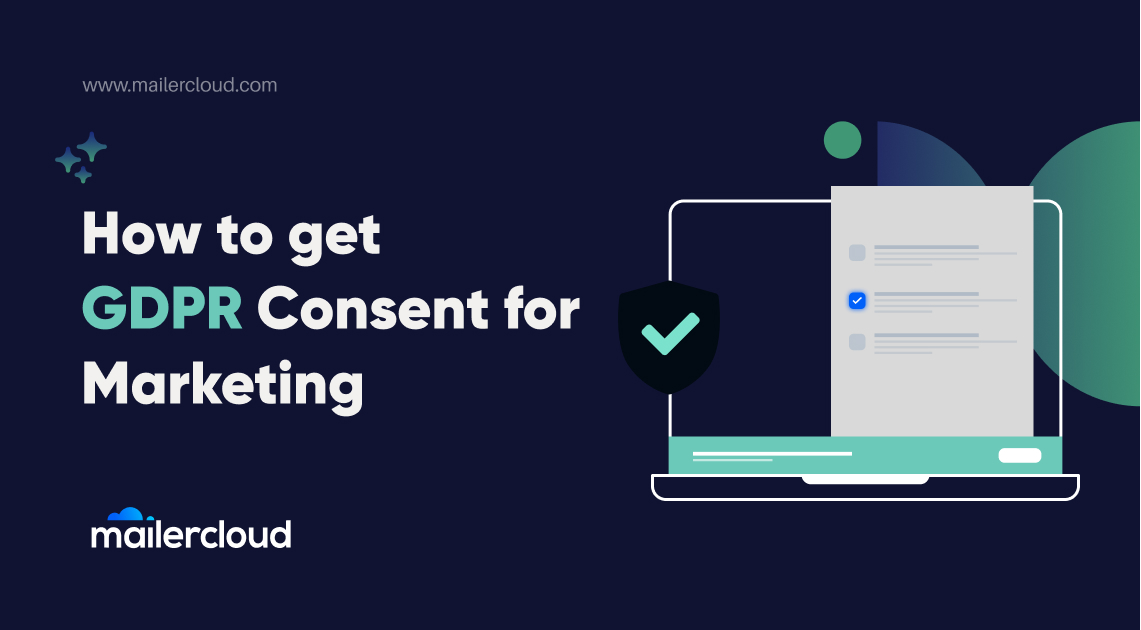When dealing with email addresses, a common question arises: Are emails case sensitive? While this might not seem significant, understanding case sensitivity can help prevent email delivery issues, maintain accurate email lists, and optimize your email marketing services.
In this guide, we’ll explore capitalization in email address syntax, how email service providers treat uppercase or lowercase letters, and best practices for handling case-sensitive email addresses. We’ll also examine whether capitalization affects email addresses, how to capitalize a letter in an email address, and whether it makes an email address more readable.
Table of Contents
Understanding Email Address Structure and Capitalization
To understand whether email addresses are case-sensitive, it’s important to know their structure. An email address consists of two parts:
- Local part: The part of an email address before the
@symbol (e.g.,John.DoeinJohn.Doe@gmail.com). - Domain part: The part and the domain part after the
@symbol (e.g.,gmail.cominJohn.Doe@gmail.com).
Is the Local Part of an Email Address Case Sensitive?
Technically, yes! According to RFC email standards, the local part of an email address must be treated as case-sensitive. This means that John.Doe@example.com and john.doe@example.com could be treated as different addresses by certain email service providers.
However, most email providers, including Gmail addresses, Yahoo, and Outlook, treat email addresses as case insensitive, meaning capitalization in your email does not impact email deliverability.
Is the Domain Part Case Sensitive?
No, the domain part and the local part function differently. Domain names follow the Domain Name System (DNS), which treats uppercase and lowercase letters identically. Whether you type GMAIL.COM, gmail.com, or GmAiL.CoM, it will always be considered the same unique address.
How Major Email Providers Handle Case Sensitivity
Different email service providers handle case-sensitive emails in different ways:
- Gmail Addresses and Yahoo Mail: These providers treat addresses as case insensitive, meaning
John.Doe@gmail.comandjohn.doe@gmail.comwill always reach the same inbox. - Microsoft 365 and Outlook: Similar to Gmail, Microsoft ensures that email addresses are not case sensitive to avoid confusion.
- Custom Domain Email Servers: Some business email services follow RFC rules, meaning capitalization in your email may affect delivery.
If you’re using email with a custom domain, it’s best to verify whether email capitalization matters for your sender reputation.
Best Practices for Handling Case Sensitivity in Emails
Even though most email service providers treat email addresses as case insensitive, following best practices ensures smooth communication.
1. Always Use Lowercase Email Addresses
Using lowercase letters ensures uniformity across email marketing services and prevents email will end up in the wrong inbox.
✅ john.doe@example.com (recommended)
❌ John.Doe@Example.com (not recommended)
2. Avoid Special Characters in Email Addresses
Although some email service providers allow international and Latin symbols, they may not be supported across all platforms.
✅ john.doe@example.com (better compatibility)
❌ john+newsletter@example.com (may cause issues)
3. Standardize Email Data in Your Email List
When creating a new email address, make sure all stored records are in lowercase to prevent duplicate records.
4. Verify Email Addresses Before Sending
To prevent different addresses from causing errors, email marketing services should validate emails before sending appealing emails.
5. Consider Case Sensitivity in Advanced Email Systems
For businesses using SMTP servers, exploiting the case sensitivity of some systems may lead to email failures. Check with your IT team whether your email service provider follows case-sensitive email policies.
Case Sensitivity in Email Standards and Protocols
Email standards define whether capitalization in your email impacts email deliverability.
1. RFC Email Standards and Case Sensitivity
RFC 5321 and RFC 5322 specify that the local part of an email address must be treated as case-sensitive. However, since popular email providers treat addresses as case insensitive, this standard is rarely enforced.
2. SMTP and Case Sensitivity
SMTP (Simple Mail Transfer Protocol) technically supports case sensitivity of mailbox local-parts, but most email service providers treat email addresses as case insensitive by default.
Do Capital Letters Matter in Email Marketing?
Do capital letters matter in email marketing? Yes! Here’s why:
- Avoid Duplicate Email Entries: Some CRMs may treat
John.Doe@example.comandjohn.doe@example.comas different addresses. - Prevent Email Delivery Issues: Some email service providers may reject an uppercase letter in an email address if it doesn’t match stored records.
- Make Your Email Address More Readable: While uppercase letters might enhance readability, it’s best to use lowercase in databases.
For email marketing services, storing addresses in lowercase letters ensures consistency across marketing emails.
Final Thoughts: Are Emails Case Sensitive?
To summarize:
- Emails are case sensitive in theory, but email service providers treat email addresses as case insensitive.
- The local part of an email can be case sensitive, while the domain part is always lower case.
- Some email service providers enforce case sensitivity of mailbox local-parts, meaning businesses should take care to preserve the case of emails.
- Using lowercase letters in email addresses is best for avoiding confusion in marketing emails and email list management.
- When creating an email address, avoid capital letters, as email addresses aren’t case sensitive for major providers like Gmail addresses and Yahoo Mail.
- Businesses using custom SMTP servers should check if their email service provider enforces case sensitivity.
By following best practices, you can master email handling, optimize your first email campaign, and ensure email to reach the right inbox. Whether for business communications or marketing emails, using basic text language and lowercase letters is the most effective approach.
As a Marketing Director, I develop and implement marketing strategies, conduct market research, and manage a team of marketing professionals. With a successful track record of launching campaigns that drive revenue growth, I bring my marketing expertise to blog writing, creating engaging content that promotes the brand and its products/services.

































